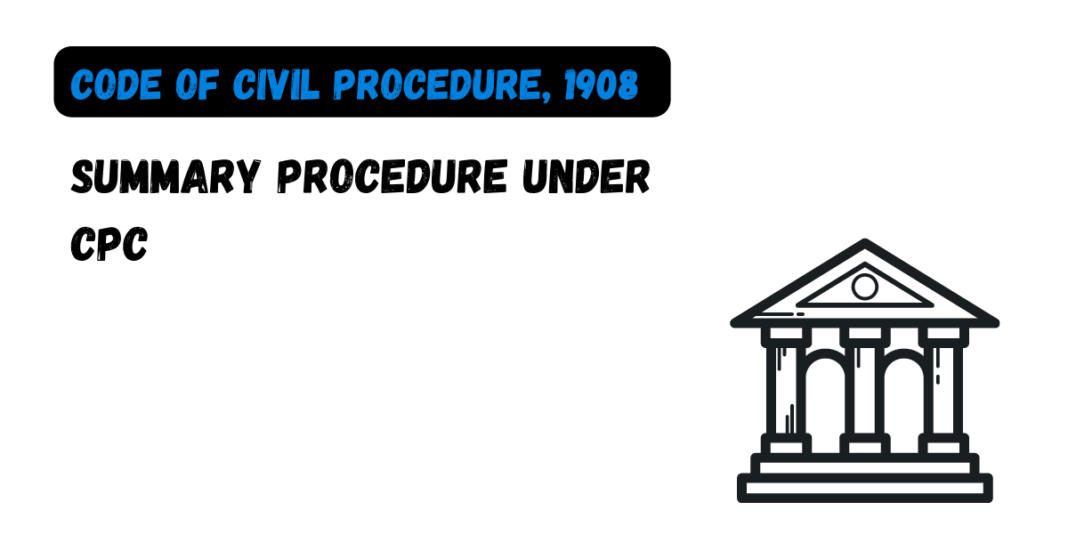The concept of summary procedure under the Code of Civil Procedure (CPC) provides for a simplified and expedited process for the adjudication of certain types of cases. It aims to achieve a quicker resolution of disputes by dispensing with some of the formalities and procedures that are typically associated with regular civil suits.
Applicability of Summary Procedure (Order 37 CPC)
The summary procedure is generally applicable to suits involving recovery of money, such as unpaid debts, loans, or liquidated claims. However, the specific criteria for invoking summary procedure may vary based on the jurisdiction and the applicable laws.
Procedure for Filing a Summary Suit (Order 37 CPC)
To initiate a summary suit, the plaintiff files a plaint along with an affidavit supporting the claim. The affidavit should contain relevant facts and documents establishing a prima facie case for recovery of the money claimed. The defendant is then served with a summons to appear before the court.
Defendant’s Response and Objections
In a summary suit, the defendant has the opportunity to contest the claim by filing a written statement supported by an affidavit. The defendant may raise objections to the maintainability of the summary suit, dispute the facts stated by the plaintiff, or present any legal defenses.
Summary Judgment
After considering the pleadings and documents submitted by both parties, the court has the power to pass a summary judgment without conducting a full-fledged trial. The court may grant a summary judgment in favor of the plaintiff if it finds that there is no genuine defense raised by the defendant. This allows for a speedy resolution of the dispute.
Defendant’s Right to Defend
While summary procedure expedites the process, it is important to note that the defendant has a right to defend the claim. If the court is satisfied that the defendant has a substantial defense, it may direct the parties to proceed with a regular trial, thereby affording the defendant a full opportunity to present their case.
Appeal and Review
The provisions for appeals and reviews of summary suits are generally the same as those applicable to regular civil suits. The parties have the right to challenge the summary judgment and seek appropriate remedies before higher courts.





